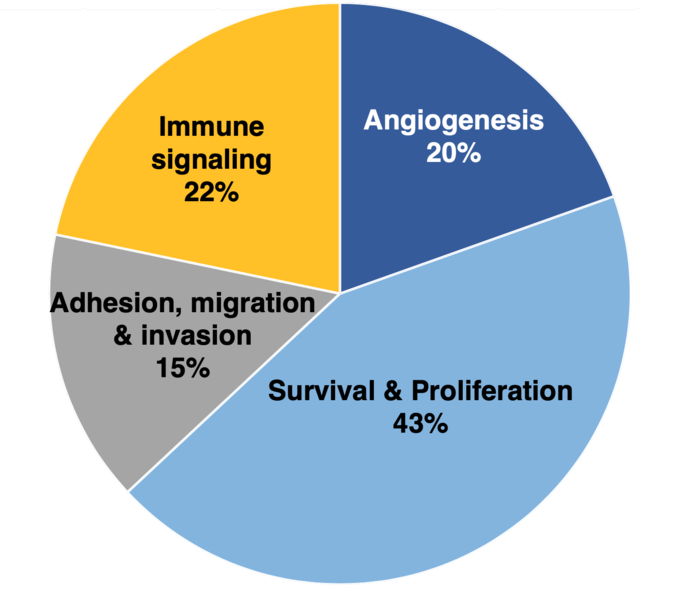Philadelphia, April 13, 2022 – Researchers have found that treating prostate cancer cells with novel cyclin-dependent kinase 19 (CDK19) and homologous cyclin-dependent kinase 8 (CDK8) inhibitors reduces their potential to migrate into and invade surrounding structures. These molecules may be used as single or combination therapy for patients with advanced disease to prevent and treat metastatic spread. The results appear in The American Journal of Pathology, published by Elsevier.

Credit: The American Journal of Pathology
Philadelphia, April 13, 2022 – Researchers have found that treating prostate cancer cells with novel cyclin-dependent kinase 19 (CDK19) and homologous cyclin-dependent kinase 8 (CDK8) inhibitors reduces their potential to migrate into and invade surrounding structures. These molecules may be used as single or combination therapy for patients with advanced disease to prevent and treat metastatic spread. The results appear in The American Journal of Pathology, published by Elsevier.
“There is an urgent need for novel therapeutic options for men suffering from advanced prostate cancer,” explained lead investigator Sven Perner, MD, PhD, Institute of Pathology, University Hospital Schleswig-Holstein; and Institute of Pathology, Leibniz Lung Center, Borstel, Germany. “In previous research we found strong evidence for the involvement of CDK19 in the growth, progression, and metastasis of prostate cancer, as well as the development of castration resistance. Since several novel CDK8/CDK19 inhibitors have recently been developed, we tested them in a prostate cancer in vitro model and identified molecular changes in cancer cells after CDK8/CDK19-inhibition with these drugs.”
The progression of prostate cancer is characterized by the development of castration resistance after initial response to androgen deprivation. In castration-resistant prostate cancer, the most aggressive form, cancer cells continue to grow even if testosterone is at or below castration levels. Based on their previous work, the investigators hypothesized that CDK8/CDK19 influence prostate cancer growth in an androgen-dependent manner and therefore contribute to castration resistance. Treatment with just a CDK8/CDK19 inhibitor or with bicalutamide, a nonsteroidal androgen receptor antagonist commonly used in castration resistance, had only modest effects. However, the combinational treatment with CDK8/CDK19 inhibitors and antihormonal agents dramatically reduced the viability of the cancer cells after long-term treatment. Inhibition of CDK19 leads to decreased phosphorylation of numerous signaling molecules which are responsible for tumor growth and metastasis. These results suggest that a dual therapy may be a promising approach to overcome resistance against anti-androgenic therapy, which is often fatal.
CDK8/CDK19 play an important role in gene transcription. Through phosphorylation of specific peptides, they are involved in immune-oncological processes and cancer-related signaling. Investigators studied three different prostate cancer cell lines after treatment with a CDK8/CDK19 inhibitor. They found numerous substrates were recurrently altered in more than one cell line. These substrates were assigned to cell functions, providing evidence that CDK8/CDK19 affect the metastatic potential of prostate cancer cells through their kinase activity. Although further investigation is needed, these results provide evidence on which pathways are affected by CDK8/CDK19 inhibition and may serve as a tool for future studies.
“There are only limited therapeutic options for the treatment of patients with metastatic and/or castration-resistant prostate cancer,” said Dr. Perner. “Based on previous findings and the results of this study, we have strong evidence that patients may benefit from a treatment with CDK19 targeting agents with or without the combination of the commonly used antihormonal agents. Now, further studies are needed to prove the findings from our in vitro models.”
Journal
American Journal Of Pathology
DOI
10.1016/j.ajpath.2022.01.010
Method of Research
Experimental study
Subject of Research
Cells
Article Title
Inhibition of Cyclin-Dependent Kinase 8/Cyclin-Dependent Kinase 19 Suppresses Its Pro-Oncogenic Effects in Prostate Cancer




